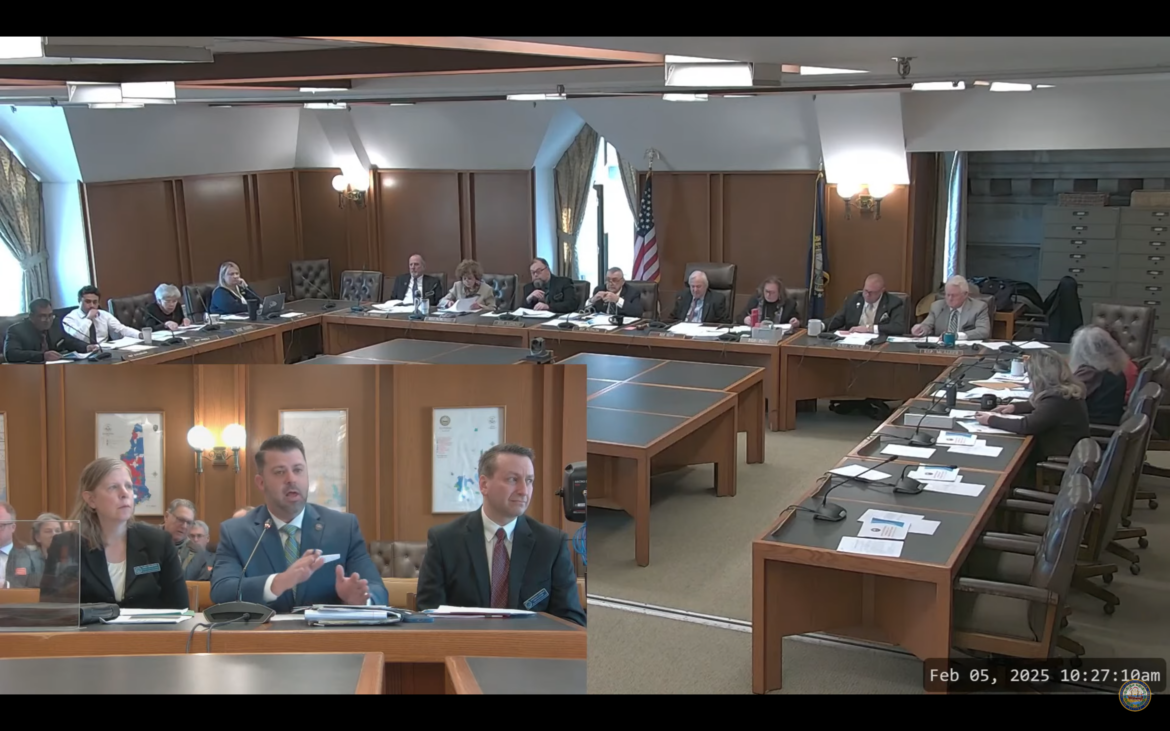By GARRY RAYNO, InDepthNH.org
CONCORD — Has your homeowner’s insurance premium increased significantly?
The New Hampshire Insurance Department is proposing what they call a modest step to help low-to-medium income residential homeowners “solidify” their home and in return see a reduction in their insurance premium.
The House Commerce and Consumer Affairs Committee heard department officials explain The Granite State Home Mitigation and Resiliency Program Wednesday that would begin with a $1 million fund generated by the current insurance premium tax.
The program is based on similar programs in several states with Alabama having the first program and Vermont and Maine also exploring instituting programs like New Hampshire.
Insurance Commissioner DJ Bettencourt told the committee homeowner premiums have been soaring which has put pressure on many homeowners who are required to have the insurance because they have a mortgage, but it is becoming unaffordable.
“It’s putting a strain on family budgets,” he said, “and becoming a real problem.”
The insurance industry is facing a “hard market,” and is being more selective about what it is willing to underwrite, he told the committee.
Some homeowners are not seeing the affordable premiums they once had and others are being non-renewed and have to go to the surplus line market which is very costly, Bettencourt said.
The reasons for the increases are inflation, higher interest rates, disruptions in the global supply chain as well as large catastrophic weather events, he said.
“There is not as much access to affordable coverage as before,” Bettencourt said. “This would be a proactive program, not a post-disaster type program like FEMA.”
To be eligible for up to a $10,000 grant, a residential homeowner’s household gross income would have to be no greater than 60 percent of the state’s median income or $87,949 for a family of four and $59,805 for a two-member family. Bettencourt said the guidelines are the same as the state’s home weatherization program.
The money could be used for fixing roofs, or fortifying the outside of the home, or the foundation against adverse weather events. Anything that would make the home safer, he said.
Bettencourt expects the greatest use of the fund will be to pay to cut down large old trees or branches that overhang a house, noting they can be very costly to remove.
The money would be awarded on a first come, first served basis, he said, until the money is gone.
The state would also be able to accept federal grants or other available money in order to have a larger fund that would allow expanding eligibility in the future, Bettencourt said.
The money in the fund would remain in the fund for the first five years, but the money from the insurance premium not used in a fiscal year would roll over into the general fund after the first five years.
The Insurance Department would administer the program and has procedures in place to ensure the money is used for its intended purposes, Bettencourt said.
“We’re not blazing a trail here,” Bettencourt said. “Seven or eight states have a program in place and other states are in the process of standing them up.”
In Alabama, 60,000 homes have been fortified and homeowners are seeing lower premiums for better positioning themselves in underwriting, he said, while some insurers offer discounts upfront.
“We know the program works, we have some data from the other states,” he said.
The department is working with the New Hampshire Homebuilders Association to make homeowners aware of the program.
“We are trying to start modestly and find ways to make the dollars count,” Bettencourt said, “to assist the greatest number of people.”
A subcommittee of the commerce committee will work on the bill before the full committee makes a decision on the bill, which is House Bill 297, with the housing fortification grant program added as an amendment.
If the bill passes the committee and receives initial approval by the House, it will go to the House Finance Committee for a review of the finances in light of the overall state operating budget.
The only appropriation requested is the $1 million in insurance premium tax, while a position currently within the department will be used for a program manager.
Garry Rayno may be reached at garry.rayno@yahoo.com.





